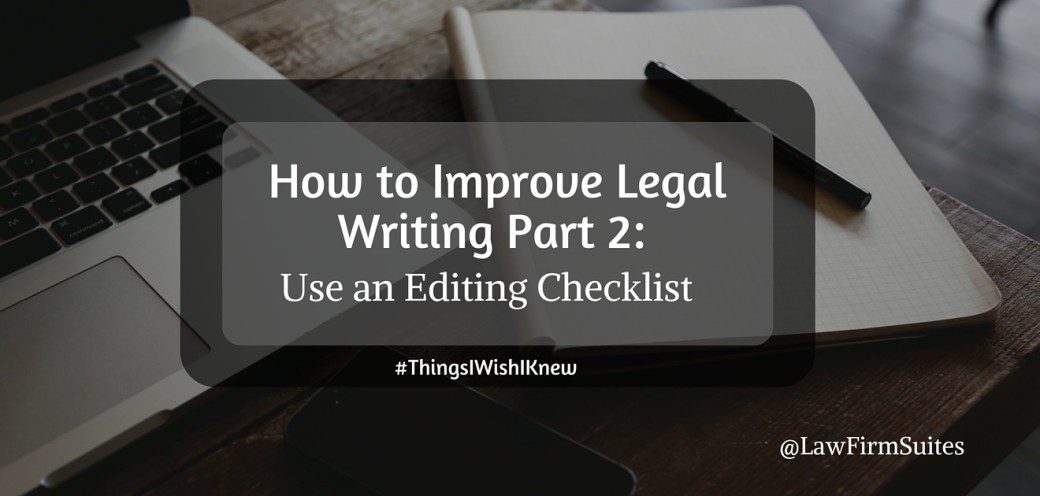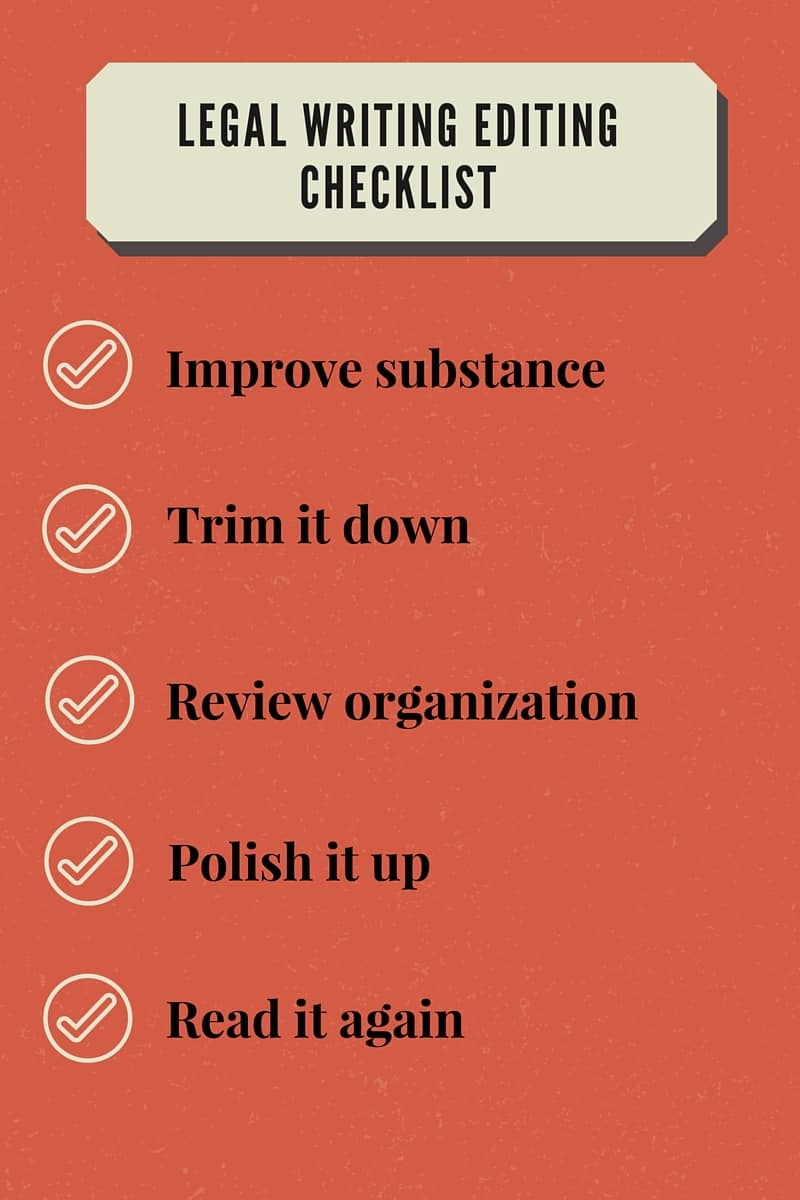In this week’s edition of Things I Wish I Knew, solo attorney Joleena Louis shares her editing checklist.
This article is part of a 2-part series on improving legal writing skills. If you missed part 1 of this series, you can find it here.
One of my resolutions for 2016 was to improve my legal writing. This is something I think every solo attorney should always be working on because legal documents are scrutinized by multiple people during a case, and the quality of your writing should reflect positively on your abilities as an attorney.
Additionally, lawyers have to write about complex matters and your ability to write effectively could have an impact on your client’s case. Writing well is something our clients pay us to do, and it’s up to us to ensure we produce our best work.
I previously discussed how attorneys can improve their legal writing by taking the time to learn how to write more persuasively, but now I want to discuss the second part of my two-pronged approach: editing.
I recently created an editing checklist.
When I first started practicing as a solo, I wish I created a checklist for most of my tasks, from legal to administrative work. I love checklists because they help me stay consistent. The key to making your editing checklist work is to tailor it to your specific needs.
Here are some of the things I have on my editing checklist:
Look for ways to improve substance
- Tag places to revisit. Try to recognize weak spots in your argument and areas where you might want to elaborate or add support. Flag problems with individual sections so you remember to go back and address your notes.
- Tweak tone. Although legal documents are formal, you should strive to write with simple language, avoid complex sentences and use a conversational tone that carries your argument in a logical way. However, remember to avoid getting too informal and make sure to remove contractions, personal pronouns, slang, sarcasm, and rhetorical questions.
Trim it down and make it readable
- Eliminate weak words. Weak words prevent your writing from sounding captivating and they make your argument fall flat. Remove lazy, nondescript words, such as “stuff” or “things,” as well as words that are vague or unnecessary, such as “really” or “very.” Also try to use the active voice instead of the passive voice whenever possible.
- Eliminate duplicate information and unnecessary phrases. As lawyers we tend to over-explain and may use an entire paragraph when a sentence is sufficient. Combine sentences that repeat information and delete redundant words and sentences.
Review for organization and consistency
- Review your formatting. Make sure you’ve used headings to create white space and that your headings make sense. See what information you can condense into a bulleted list to make your document easier to read. Also check to make sure you’ve used only a single space after each sentence.
Polish it up
- Run spell check. This seems obvious, but sometimes you forget to do it. You don’t want to look unprofessional because of a typo.
- Check grammar and punctuation. It’s common to misuse apostrophes, commas and semicolons. Sometimes it helps to circle your punctuation and go back through to make sure you’ve used everything correctly. You should also circle words you’ve capitalized or are uncertain should be capitalized so you can double check these items.
Read it again and again
- Slow down and read out loud. Spell check won’t be able to catch every error and it certainly won’t know the difference if you meant to write “your” instead of “you’re” or “trial” instead of “trail.” This is why you should always read through your document several times. Try printing your document out and reading through it closely, paragraph by paragraph.
- Look for any frequent mistakes. You should customize your checklist to address your personal bad habits. For example, I have a habit of adding unnecessary commas, so that is something I know to double check when editing. Before you mark any piece of writing as complete, make sure you go back over it one more time and look for those specific mistakes you know you tend to make.
Checklists keep you organized, make you more thorough and alert you to some of the mistakes you might be making in your writing.
Creating a checklist may take a little extra time, but using it will greatly improve your writing.



